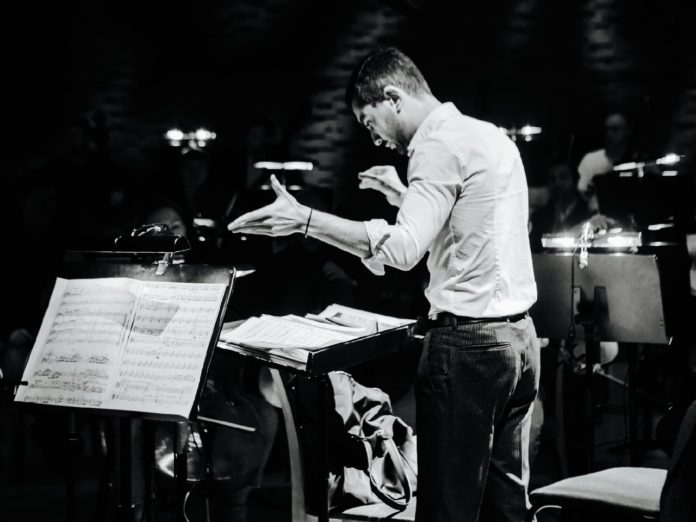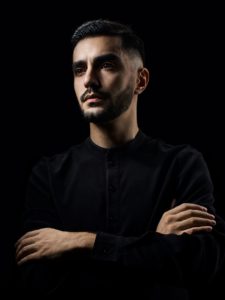By Artsvi Bakhchinyan
Special to the Mirror-Spectator
YEREVAN/SAINT-PETERSBURG — Russian conductor Gurgen Petrosyan was born in 1991 in Nalchik, in the Kabardino-Balkaria region of North Caucasus. He studied at the College of Culture and Arts of the North Caucasus State Institute of Arts, majoring in choral conducting, in Rosa Khashukoeva’s class, who sent the student to the Saratov L.V. Sobinova State Conservatory, department of choral conducting (Nelli Vladimirtseva’s class).
In 2015 Gurgen graduated from the Saratov State Conservatory as a choir conductor and in 2017 as a symphony orchestra conductor. He took part in master classes by Theodor Currentzis, Denis Fisher and Yuri Simonov.
During his studies, Gurgen became a laureate of a number of competitions, including the Krasnoyarsk International Competition of Conductors of Academic Choirs (1st Prize, 2015). In 2015-2017, he was the assistant conductor of Saratov State Conservatory Symphony Orchestra, and in 2016-2018, he was the conductor of the Volga Chamber Orchestra.
Gurgen Petrosyan performed with the State Symphony Orchestra of Armenia, New Russia State Symphony Orchestra, the Mariinsky Theater Symphony Orchestra, the State Philharmonic Chamber Orchestra of Kostroma Region, Astana Philharmonic State Symphony Orchestra, the Moscow State Symphony Orchestra for Children and Youth, the Hong Kong Sinfonietta Symphony Orchestra.









